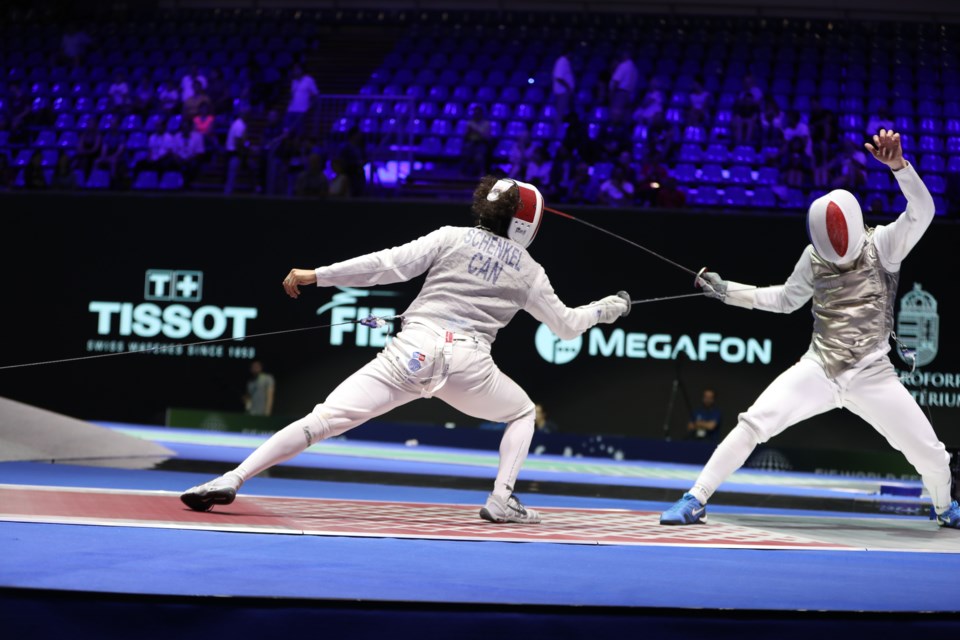Eli Shenkel represented Canada at the 2020 Tokyo Olympic Games while building up his own fencing club in Richmond
Prior to the Olympics and during the height of the pandemic, Shenkel was forced to travel outside the province to train with other athletes.
“It was pretty stressful, and not the best mental health-wise. It put a whole bunch more pressure on me.”
A month before he took the Olympic stage, Shenkel suffered a hamstring injury. He says it was the best thing that could have happened to him.
“I had been away from family, my students and this place I had considered home for the past two years,” he says. “I had so many pressures on me and being injured made me realize that things could be a lot worse. It put me in a better headspace going into the Games.”
Although he credits the Canadian Fencing Federation for doing their best to support struggling athletes, he does question whether more could be done to meet every individual’s needs.
Shenkel and brother Joseph opened their own fencing club, S-Class Fencing, at the beginning of the pandemic in 2020.
As a coach for an individual sport, he emphasizes the importance of understanding what type of training works for each individual athlete.
As for the mentality of himself and his students, he says, “Having the approach to self-reflect, is when mental health doesn’t become worrisome.”
Shenkel hopes to teach his students that failure is merely an opportunity to grow, and if they are still excited to come back to training the next day, it’s a win in their books.



